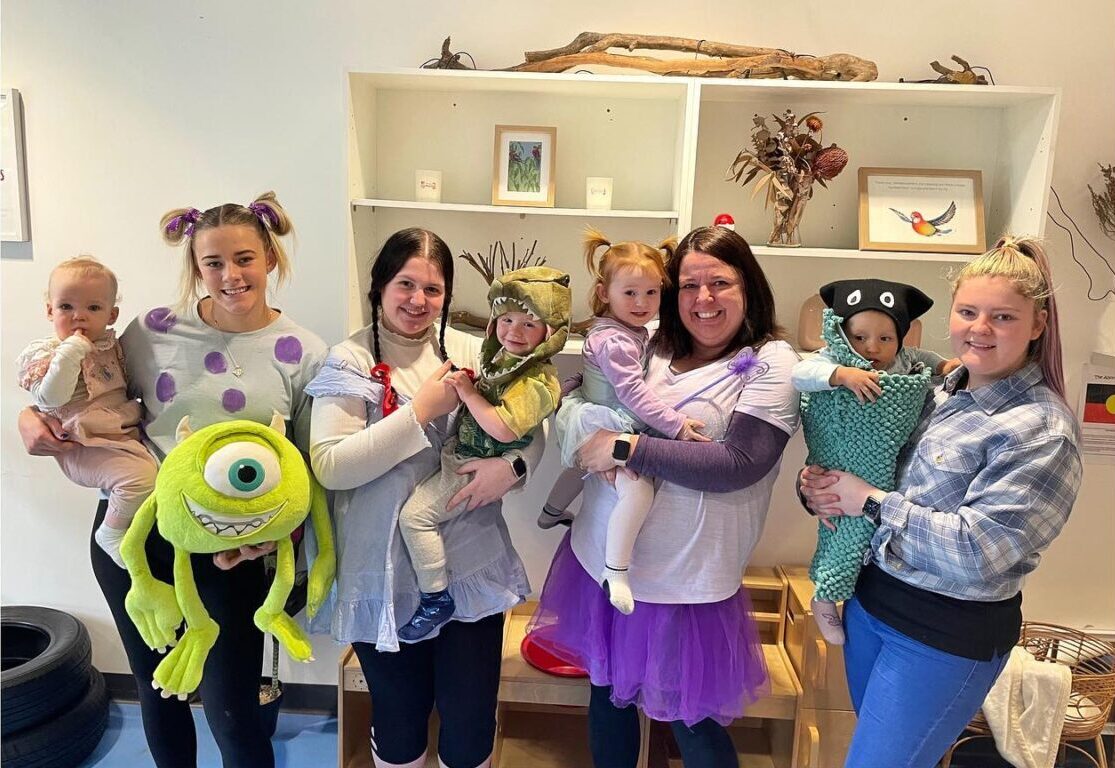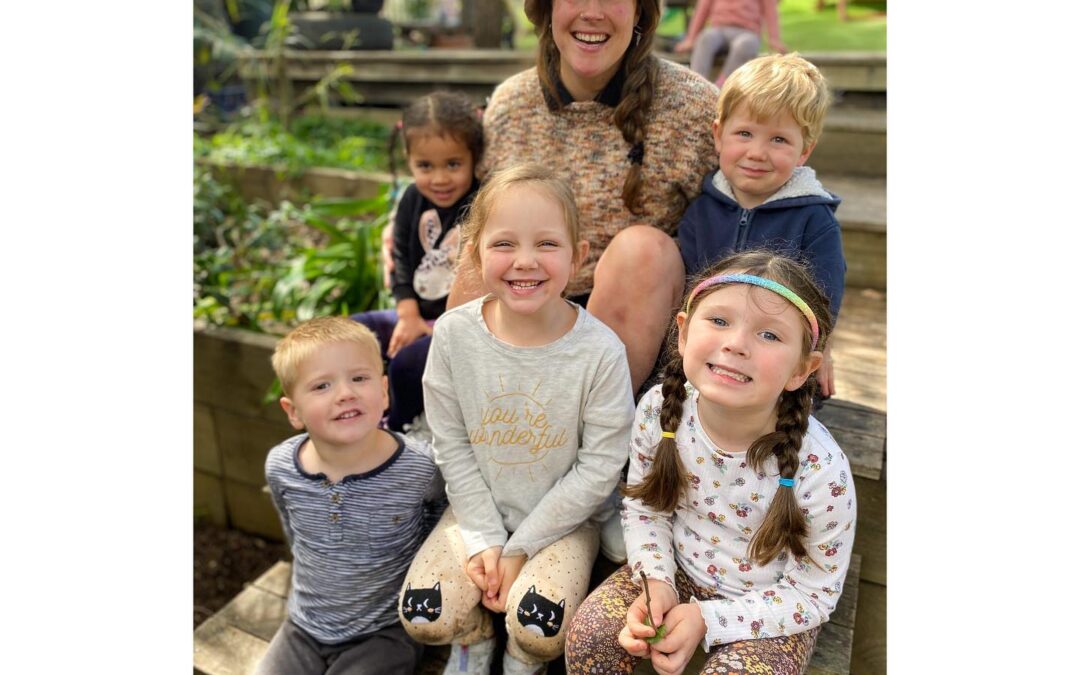What is the Best Age to Send Your Child to Childcare? A Comprehensive Guide for Parents
Deciding when to send your child to childcare is a significant milestone for many parents, particularly those balancing work commitments and wanting to ensure the best start for their child’s development.
So what is the best age to send your child to childcare? With a range of childcare options available, from family daycare to long-day care centres, Newcastle parents have access to quality services that provide a supportive environment for their child. Understanding the optimal age for starting childcare involves considering your child’s developmental needs, family circumstances, and available options in the Newcastle area. This article delves into the best age to start childcare, explores expert opinions, and outlines the local considerations to help you make the best decision for your family.
Key Takeaways
- Why Consider Childcare
- What Do Experts Recommend
- Factors to Consider When Deciding the Best Age for Childcare
- Childcare Options
- Making the Transition to Childcare Smooth
Before delving into the ideal age for starting childcare, it’s essential to understand why childcare is beneficial. Childcare offers a range of developmental advantages for children alongside practical benefits for parents:

1.) Why Consider Childcare? The Benefits for Children and Parents
- Social Development: Childcare provides opportunities for children to engage with peers, helping them develop critical social skills such as sharing, taking turns, resolving conflicts, and understanding social cues. This social interaction is precious for children who do not have siblings or peers of similar age to interact regularly.
- Cognitive and Language Development: High-quality early childhood education can significantly enhance a child’s cognitive skills, including early literacy, numeracy, and language development. An Australian Early Development Census (AEDC) study shows that children participating in structured early learning programs are often more prepared for school, displaying improved cognitive and social-emotional development.
- Routine and Structure: Childcare centres offer a structured routine to help children feel secure and understand daily schedules. Routines in childcare settings include regular meal times, nap times, and play-based learning activities, which contribute to a child’s sense of stability.
- Support for Working Parents: For many families, childcare is essential for allowing parents to return to work, particularly in dual-income households. With childcare, parents in Newcastle can pursue their careers knowing their child is in a safe, nurturing environment.
2.) What Age Do Experts Recommend Sending Kids To Childcare? Understanding Developmental Stages
There is no universally agreed-upon age to start childcare, as every child and family is unique. However, experts provide valuable insights into how different ages can impact a child’s adjustment to childcare:
0-12 Months: Focusing on Bonding and Trust
Babies primarily benefit from a close bond with their primary caregivers in the first year of life. According to the Australian Institute of Family Studies (AIFS), starting formal childcare during this period can be challenging for some babies, as they are in a stage where attachment to caregivers is crucial for their sense of security. Babies rely on consistent, one-on-one interactions with caregivers to develop trust, which forms the foundation for healthy emotional development.
For parents in Newcastle who need to return to work before their child turns one, look for a daycare that offers a more intimate and home-like environment with separate areas/rooms for babies and experienced early childcare educators.
Recommended Reading: What are the best childcare centres in Newcastle?
12-24 Months: Exploring Independence and Social Skills
As children grow closer to their second birthday, they become more interested in the world around them and often display greater independence. This is when they start to explore their surroundings actively, interact with other children, and build language skills.
The National Quality Framework (NQF) in Australia ensures that childcare centres in Newcastle and throughout Australia maintain appropriate educator-to-child ratios, which is especially important in this age group where toddlers need close supervision and guidance during social interactions.
Some experts suggest that children between 18 months and 2 years may find it easier to adjust to childcare than younger babies because they can better express their needs and handle short separations from their parents. For families in Newcastle, this age can be a sweet spot for introducing their child to a nurturing childcare environment, fostering both independence and social development.
3-5 Years: Preparing for School and Structured Learning
Between the ages of 3 and 5, many early childhood education specialists agree that children are ready to benefit significantly from structured early learning environments like childcare and preschools. This is when children’s cognitive abilities, such as problem-solving, concentration, and communication skills, rapidly expand. The Australian Government’s Early Learning Matters Week emphasises the critical role of early learning in preparing children for the transition to primary school.
In Newcastle, many childcare centres offer preschool programs that incorporate play-based learning, which helps children develop critical thinking skills, creativity, and the ability to work within a group setting. These programs align with the Early Years Learning Framework (EYLF), which guides early childhood education in Australia, ensuring children receive quality learning experiences.
View this post on Instagram
3.) Factors to Consider When Deciding the Best Age for Childcare
Choosing the right age to start childcare is a highly individual decision. Here are some key factors that parents in Newcastle should consider when making this choice:
Your Child’s Temperament and Readiness
Children have different temperaments, and their readiness for childcare can vary. Some children adapt quickly to new settings and routines. In contrast, others may need more time to adjust to being away from their primary caregivers. Observing how your child reacts to new situations and unfamiliar people can help you gauge their readiness for childcare.
Family and Work Situation
For many parents, the decision to start childcare is influenced by practical needs, such as returning to work after parental leave. The Australian Government offers a Child Care Subsidy to help make childcare more affordable for working families. For parents in Newcastle, understanding the costs and subsidy eligibility can play a significant role in determining when and where to enrol their child. Check out our article if you’re wondering what the cost of childcare in Newcastle.
Quality of Childcare Services Available
The quality of care provided by a centre is a crucial consideration. In Newcastle, parents can access information on the ratings of childcare centres through the Starting Blocks website, which lists services rated under the NQF. It’s essential to visit potential childcare centres, meet the staff, and observe the environment before deciding.
Social Interaction Opportunities
From the age of around 2 years, social interaction becomes increasingly important for children. Newcastle has several childcare centres that offer stimulating environments where children can interact with peers and participate in group activities. This interaction helps build social skills, emotional regulation, and the ability to collaborate with others—skills that are vital for success in school and beyond.
View this post on Instagram
4.) Childcare Options in Newcastle, NSW
Newcastle offers various childcare options catering to different age groups and family preferences. Here’s a look at some popular choices:
Long Day Care Centres
Long day care centres offer full-day care for children from 6 weeks to 5 years old. These centres typically provide structured learning through play-based activities and have qualified early childhood educators. Centres like ours here at Imagine are popular options for parents seeking a nurturing environment for their children throughout the day.
Family Day Care
Family day care provides a smaller group setting, often in a home-like environment. It is an excellent option for younger children who may benefit from a quieter and more intimate setting. Family daycare can offer flexible hours and personalised care, which can help babies and toddlers.
Preschools
Preschools are designed for children aged 3-5 and focus on preparing them for the transition to formal schooling. Many long daycare centres offer Preschool programs that adhere to the EYLF and emphasise the development of early literacy, numeracy, and social skills.
Recommended Reading: Best Childcare In Newcastle
5.) Making the Transition to Childcare Smooth: Tips for Parents
Starting childcare can be a big adjustment for both parents and children. Here are some practical tips for making the transition smoother:
- Gradual Introduction: Begin with shorter visits to the childcare centre and gradually extend your child’s time there; this helps them get used to the new environment and routine without feeling overwhelmed.
- Establish a Goodbye Routine: A consistent goodbye ritual, such as a hug or a special phrase, can comfort your child when you leave them at the centre.
- Stay Connected with Carers: Keep an open line of communication with your child’s carers. Discuss how your child is adjusting, any concerns you may have, and ways to support them during the transition.
- Maintain Consistency at Home: Having a consistent routine at home can help children feel more secure, especially during significant changes like starting childcare.
Recommended Reading: How Can You Help Your Child Settle Into Childcare?
View this post on Instagram
Conclusion: Finding the Right Time for Your Family
Determining the best age to send your child to childcare is a personal decision that depends on your child’s individual needs, your family’s situation, and the quality of care available. While research suggests that 3-5 years is ideal for many children to begin structured learning, younger children can thrive in high-quality childcare settings when the circumstances are right. For parents in Newcastle, NSW, understanding the local childcare landscape and taking time to assess different options will ensure a positive and enriching experience for both you and your child.
Recommended Reading: Best Childcare In Newcastle
By finding the right fit, you can confidently support your child’s growth, development, and transition to formal education.
References
- Australian Institute of Family Studies (AIFS). “Childcare in Australia.” Retrieved from AIFS.
- National Quality Framework (NQF). “Understanding Ratings.” Retrieved from ACEQA.
- Early Learning Matters Week. “Why Early Learning is Important.” Retrieved from Early Childhood Australia.
- Starting Blocks. “Find Child Care.” Retrieved from Starting Blocks.
- Australian Early Development Census (AEDC). “Supporting early childhood development.” Retrieved from AEDC.
By carefully considering these factors, parents can find the best time for their child to start their childcare journey, ensuring it supports their growth and well-being while fitting seamlessly into the family’s life in Newcastle, NSW.
Imagine Early Learning & Childcare is a small network of family-owned and operated childcare centres in Newcastle.
For 26 years, we have been setting the benchmark for high-quality early childhood education and child care in Newcastle. Our six daycare centres in Newcastle and Lake Macquarie are purpose-built and architecturally designed to optimise care and learning for children from birth to school age. Our environments abound with natural elements for nature-based play and learning opportunities, both inside and out.
At Imagine Early Learning and Childcare, we believe that childhood is about playing, discovering and believing in dreams.
Come and see why Imagine Early Learning & Childcare are considered among the best daycare centres in Newcastle and Lake Macquarie.

